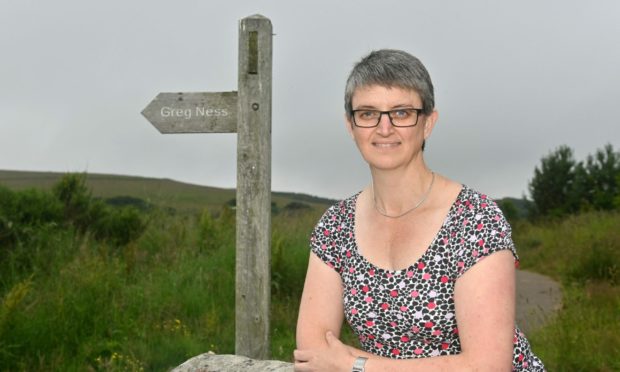North East Green MSP Maggie Chapman says she is “angry and sad” at the amount of racist and anti-immigrant abuse she receives.
Ms Chapman, who was born in Zimbabwe and moved to Scotland in 1998, was elected to the Scottish Parliament earlier this year – and says becoming an elected representative makes her target for racist and xenophobic attacks.
When she was officially sworn into Holyrood, she gave her oath in both English and Zimbabwean Shona to reflect her heritage.
Over the weekend, she received an email from a constituent saying Scotland does not want “foreigners” like her, and said “take yourself back to Rhodesia”.
This comes only a day after Health Secretary Humza Yousaf unveiled he had received a barrage of racist emails threatening to kill him.
Ms Chapman says she needs to call out this abuse to help build a “welcoming society which values and celebrates diversity”.
‘A clear anti-immigrant undercurrent’
The Green MSP said: “The email came in on Sunday morning and unusually it is not an anonymous email – there is an address with it so there are options for me to take this further.
“I presume this is in response to my comments in the chamber about Afghanistan and the refugee scheme.
So, the state of my inbox today. Not just the usual transphobia & homophobia, but a bit of racism too.
How nice.
I’m lucky I can laugh this off. I’m aware of my privilege & try daily to use it for the good of others. Not everyone can though. This is not ok!
[Text in thread] pic.twitter.com/qP82Tp0pc5— Maggie Chapman MSP (@MaggieChapman) September 5, 2021
“In some ways I am not surprised, I am very well aware that people who hold these racist views exist, and aware they will take it upon themselves to contact their elected representatives about it.
“It makes me angry and sad.
“Using ‘Rhodesia’ as well is very, very loaded and has a clear anti-immigrant, xenophobic undercurrent.”
Zimbabwe was known as Rhodesia after British imperialist Cecil Rhodes marched into the territory with the British South Africa Company in the late 1800s, which ruled over the territory until the early 1920s.
Cecil Rhodes was instrumental in the so-called “scramble for Africa” and a firm believer in British imperialism, but in recent years there have been multiple efforts to change his legacy.
The #RhodesMustFall campaign for example is pushing for multiple statues of him to be removed, including at Oxford University and Cape Town University.
Duty to call out racism and xenophobia
Ms Chapman says her position as an MSP means she needs to call out racist abuse when it happens, in a bid to make Scotland a more tolerant place.
She added: “I am resilient and thick-skinned so I don’t let it affect me, but my staff see these emails and we can’t filter them out.
“There is an expectation that is an okay thing to say to an elected representative, which is appalling.
“Being an elected representative does make me a target, but I also have a duty to call out this bigotry and prejudice.
“Politicians are people too, and people need to be aware this happens on a much more regular basis.
“I want to call it out rather than just saying ‘oh, it’s just another email’, because we can challenge this discrimination.
“It is not okay and it is not how we build the open, inclusive society we know we want to build.”

